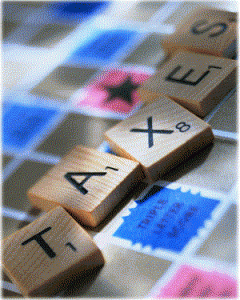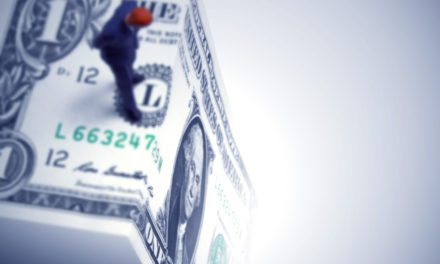Some Memphis officials can be forgiven for feeling like the guy at the bar whose drunk friend tries to defend him, throws a roundhouse punch, and knocks him flat.
That’s the prevailing feeling about the 7-5 vote by the Shelby County Board of Commissioners to put a countywide sales tax increase on the ballot. It may have been that the commissioners representing Memphis who wanted to poke their thumb in the eyes of the municipalities, but there’s no question they also slapped City of Memphis in the face.
While the Memphis referendum increasing local sales tax to the 9.75% maximum allowed by law was anything but a slam dunk, Memphis officials are close to being denied the chance to find out.
Here’s the thing – the really big thing: a Memphis-only sales tax increase (or a Germantown-only sales tax increase for that matter) means that all the revenues from the increase stay with that government which can spend it as it wishes. If the sales tax increase is countywide, half of it goes to the city where the sales took place and the other half goes to schools.
In other words, that $47 million in new revenues from a higher sales tax rate in Memphis is cut in half to $23.5 million with a countywide sales tax increase.
Taxing Times
The county commissioners, for their part, say their concern (make that a deep concern) is about getting ready for the increase in funding that will inevitably be needed to prepare for the unified school district (particularly to implement the outstanding recommendations of the Transition Planning Commission) that will become operational in fall, 2013. Board of Commissioners Chairman Mike Ritz, the architect of the countywide sales tax plan, said he believes that if city government approves a Memphis sales tax increase this fall, it makes it less likely to pass countywide if the board of commissioners pursues that funding option in the future, because the only people voting will be residents of unincorporated Shelby County.
We’re not as sure. The residents of unincorporated Shelby County may see the voter as their referendum on the merged school district since it now covers this area, and with much of this area within the annexation reserve area of municipalities, they may just want to stick it to Memphis for setting the reinvention of public education here in progress.
It certainly wasn’t the case 30 years ago because “county” residents had no problem approving the sales tax increase. In February, 1983, City of Memphis increased its sales tax to the current level. Eleven months later, Shelby County made it countywide.
Leveling the Field
The board of commissioners has every right to be concerned that the cost of the new unified system will now be its total responsibility, but it’s not yet made a convincing case about why a countywide sales tax should be increased now.
As for Memphis, faced with a deficit of about $25 million for next year, increased debt payments, declining property values, and a nine cent cut in the city tax rate, some City Council members were counting on the additional sales tax revenues as the answer to a fiscal prayer. Meanwhile, Memphis Mayor A C Wharton and several Council members pledge that if the city sales tax was approved, they would substantially reduce the city property tax rate.
For several years, a number of City Council members have wanted to get the city tax rate below $3 and if Memphis could reduce the property tax rate by 25 cents to $2.86, it would take a step toward leveling the playing field between Memphis and the smaller cities in Shelby County, particularly if City Council is successful in its continued effort to shift costs to county government and as the towns’ property taxes rise in coming years to pay for schools.
This is more than just fascinating theater for the politically inclined. More to the point, who wins will fundamentally affect the financial stability and limit the financial options for who loses.
Winners and Losers
Here’s the tale of the tape, as provided by Chairman Ritz, whose interest in making sure that the voters in the municipalities had information about the tax hikes required to pay for their new districts made him a pin cushion for darts thrown at him by town school advocates:
* The countywide sales tax increase of 0.5% produces new revenue of $61.1 million, half for general government and half for schools.
* The Memphis-only sales tax increase of 0.5% produces new revenue of $48 million which can be spent however City of Memphis wants to spend it.
* The 0.5% increase passed by each of the smaller municipalities (except for Millington where it failed) produces $482,416 for Arlington; $3.8 million for Bartlett; $4.2 million for Collierville; $2.5 million for Germantown; and $264,624 for Lakeland.
* With a countywide increase, Arlington, Germantown, and Lakeland are winners (allocation based on SES students enrolled in each district) with respectively $745,680, $417,437, and $33,162 more than their municipality-only tax; the losers are Bartlett which gets $85,288 less and Collierville which gets $578,830 less.
* The countywide sales tax increase produces $24.1 million for the unified school district, with most of it coming from Memphis.
Inevitable
Suburban commissioners and other politicians are once again playing the victim, but it’s hard for us to believe that the overriding intent of this referendum push is to punish the towns in a petty, spiteful act. Frankly (and we hope you’re sitting down), now that the voters in these towns have decided to start their own districts, they have every right to decide their preference for funding them.
That said, the towns – and Memphis, for that matter – must have known that it was highly likely that their city only sales tax increases would not stay in place forever, because it had to be obvious that with few options for funding schools, Shelby County Government would eventually look to sales taxes.
As Mr. Ritz correctly said, the other option is to increase property taxes and that’s always guaranteed to produce (particularly from the suburbs which are always anathema to new taxes until it came to walling off their schools). On balance, however, it seems Shelby County Mayor Mark Luttrell’s call for calm and reasoned analysis before doing anything definitive will win the day.
Some have suggested that Mayor Luttrell has been too deferential to the suburban school interests but his normal cautiousness may be what is needed right now. He’s already gotten out his veto stamp (yes, there is one) and he is ready to reject the commissioners’ sales tax increase resolution. It’s not clear if there are the votes to override his veto (it only takes seven votes to pass a resolution but it takes eight votes to override that veto). Chairman Ritz says he has the eight votes, but that was before lobbying by city officials and the Luttrell Administration which is expected to be intense before the next commissioners’ meeting.
Land Rush
After three decades of an increased sales tax rate being treated as the third rail of local politics (Mr. Ritz voted against it just a few months ago himself), it’s now a land rush in our community as every local government in Shelby County now wants the maximum local option tax rate allowed in Tennessee of 2.75%. There are 20 cities in Tennessee that have a sales tax greater than the county where they are located. None of them are among Tennessee largest cities.
If Shelby County increases its sales tax to the maximum rate, it will join the other 45 counties in Tennessee who have already done so. Meanwhile, Hamilton County (Chattanooga), Knox County (Knoxville), and Davidson County (Nashville) remain at 2.25%.





I’m now very confused. I had understood the following under the current local option sales tax of 2.25% :
1) Shelby County government receives the tax collected in unincorporated areas and while obligated to give half to schools, had chosen to give all to schools.
2) Memphis receives the tax collected within its borders and gives the obligatory half to schools and uses the other for general government.
Why is there a difference between a municipal-only local option sales tax and a county-wide local option?
Has Germantown, et al in the past given half of their local option sales tax to Shelby County Schools or does some of the money go to Memphis City Schools on a ADA basis?